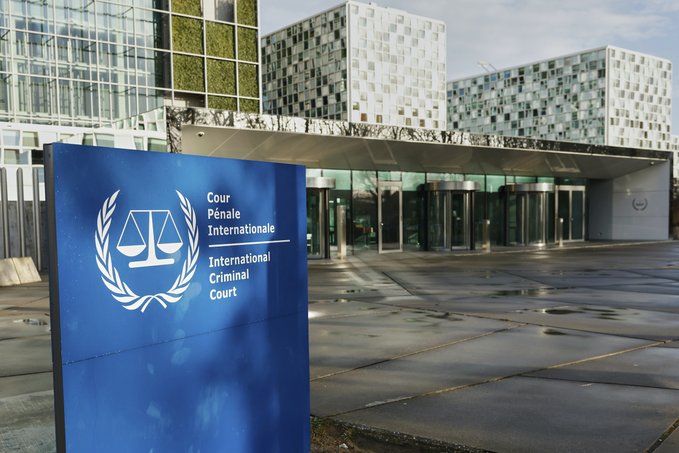The Trump administration has recently escalated its campaign of pressure against the International Criminal Court (ICC) by imposing new sanctions on four senior ICC officials. This move marks a significant intensification in Washington’s efforts to counter the ICC’s investigations into certain actions involving both the United States and Israel, which the administration views as illegitimate and detrimental to national sovereignty.

The sanctions, announced in August 2025, target two judges and two prosecutors associated with cases linked to Israel’s military actions and past investigations into U.S. personnel. The officials sanctioned are Nicolas Yann Guillou from France, Nazhat Shameem Khan from Fiji, Mame Mandiaye Niang from Senegal, and Kimberly Prost from Canada. Each of these individuals has played a key role in judicial or prosecutorial decisions that the Trump administration criticizes as overreach by the ICC.
The U.S. government’s formal justification for the sanctions is that these ICC officials engaged in efforts to investigate, arrest, detain, and prosecute American and Israeli nationals without the consent of either Washington or Jerusalem. Secretary of State Marco Rubio described the ICC as a “national security threat” and accused it of being a tool of “lawfare” — the misuse of legal systems for political ends — against the United States and its close ally Israel. Rubio emphasized the U.S. opposition to what it characterizes as politicization and abuse of judicial power by the ICC, along with a disregard for U.S. national sovereignty.
Two of the sanctioned judges were involved in issuing arrest warrants against prominent Israeli leaders, including Prime Minister Benjamin Netanyahu and former Defense Minister Yoav Gallant. These warrants stem from ICC allegations of war crimes and crimes against humanity related to Israel’s conflict with Palestinian groups in Gaza and the West Bank. The ICC’s warrants for Israeli officials have been strongly rejected by both Israel and the U.S., who argue that neither country recognizes the ICC’s jurisdiction due to their non-membership in the Rome Statute, the treaty that established the ICC.
Kimberly Prost, a Canadian judge, was specifically sanctioned for authorizing the ICC’s investigation into alleged war crimes by U.S. personnel in Afghanistan. This case had already triggered fierce resistance from Washington, which regards the ICC as lacking legitimate authority over American military actions overseas. Similarly, the two ICC deputy prosecutors, Nazhat Shameem Khan and Mame Mandiaye Niang, are penalized for their ongoing support of ICC investigations deemed “illegitimate” by the U.S. government.
The Trump administration’s move continues a pattern of hostility toward the ICC that began with an earlier executive order signed in 2025, which authorized freezing the assets and travel bans against ICC officials. This effort was preceded by similar sanctions imposed during Trump’s first tenure, which had been briefly lifted by the Biden administration before being reinstated in early 2025. The current sanctions regime authorizes penalties against ICC officials and entities that assist them, with the U.S. Treasury empowered to identify further targets on a rolling basis.
The broader context for these sanctions is the Trump administration’s insistence on protecting American and Israeli personnel from what it calls unjustified interference by an international court without jurisdictional authority over non-member states. The sanctions are also widely seen as an attempt to undermine the ICC’s ability to carry out investigations into alleged human rights abuses and war crimes, signaling a sharp diplomatic rift between the United States and the international judiciary.
Critics of the sanctions warn that they compromise the independence of the ICC and potentially hamper global efforts to hold perpetrators of serious crimes accountable. The ICC, established by the Rome Statute since 2002, operates under the principle of complementarity, meaning it intervenes only when national courts fail to act. The Trump administration’s punitive stance reflects a broader skepticism about international institutions and a preference for unilateral national sovereignty over multilateral judicial processes.
In conclusion, the sanctions imposed by the Trump administration on four ICC judges and prosecutors highlight a profound clash between U.S. policy priorities and the ICC’s international mandate. The targeted individuals are penalized for their involvement in investigations concerning American and Israeli officials, underscoring the geopolitical sensitivities and controversies surrounding the ICC’s role in prosecuting alleged crimes by powerful states and their allies. These developments are expected to lead to continued tensions, legal challenges, and debates over the future of global justice mechanisms.
This situation represents a key chapter in the evolving relationship between the United States and the International Criminal Court, one that raises critical questions about the balance of power in international law and the protection of human rights worldwide[web

